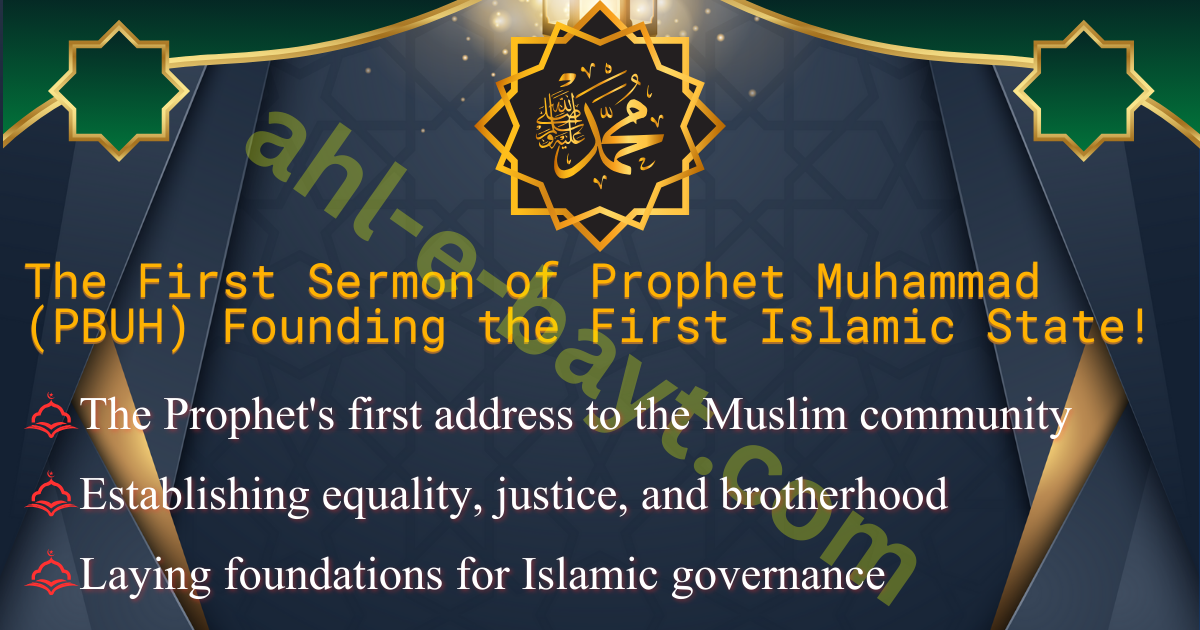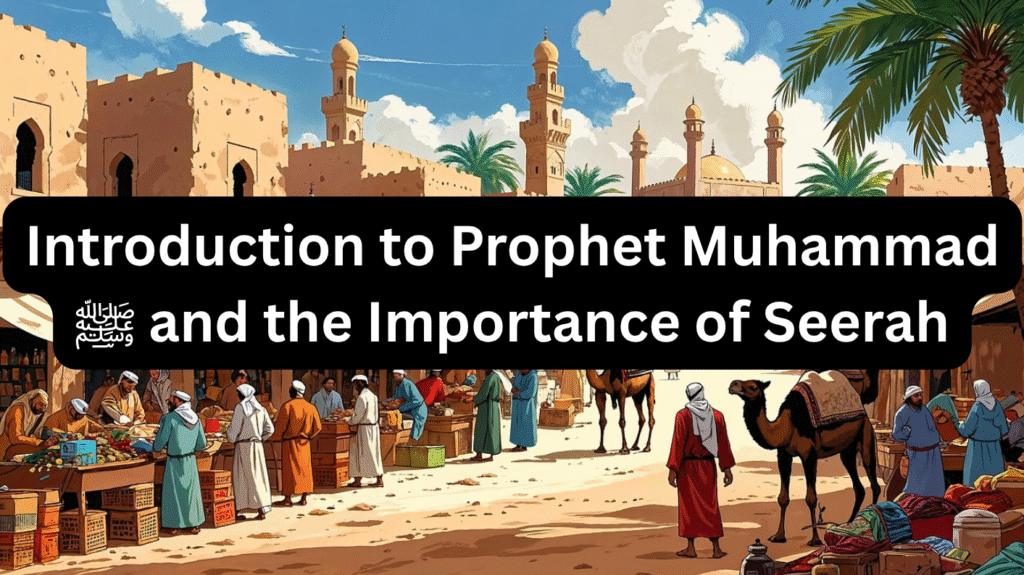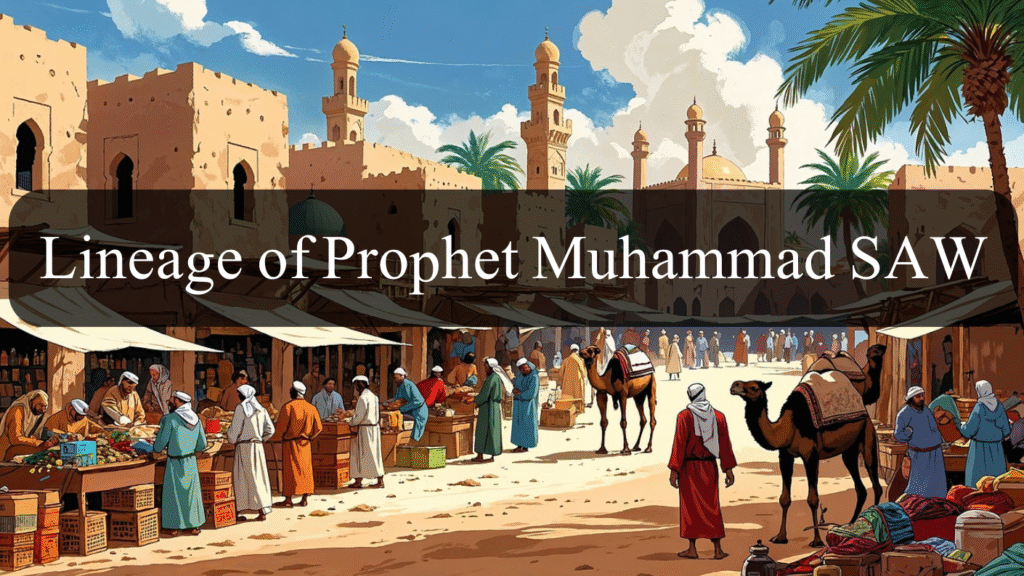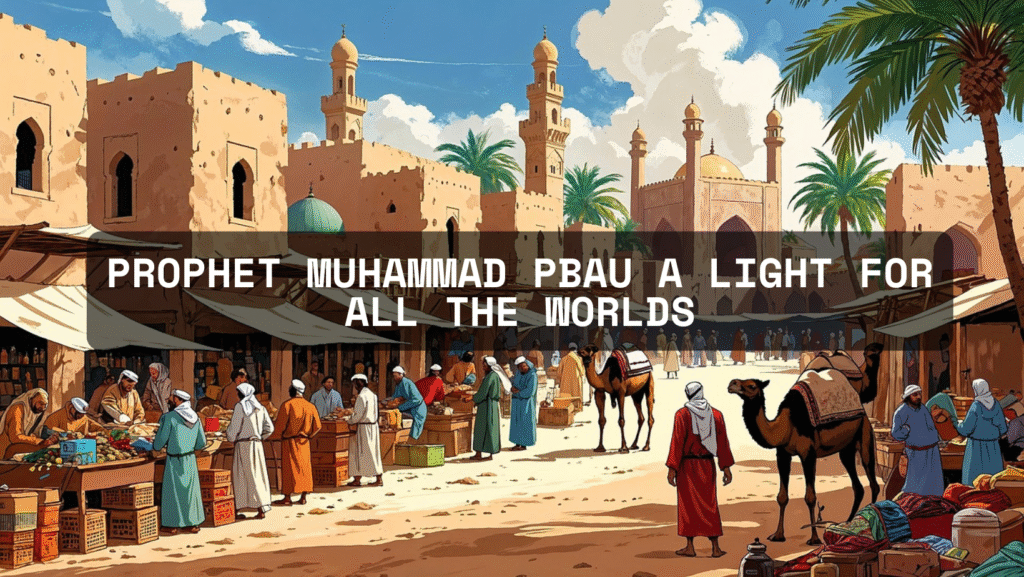The First Sermons of Prophet Muhammad (PBUH) and the Constitution of Medina: Cornerstones of Islamic History
Introduction: The Dawn of a New Era in Medina
The arrival of Prophet Muhammad in Medina marked not just a physical migration but the beginning of a revolutionary transformation. His first sermon and the subsequent Constitution of Medina laid the groundwork for what would become the first Islamic state, establishing principles that continue to inspire millions worldwide. This historic moment represented a pivotal shift from tribal fragmentation to unified nationhood, creating a model society based on divine guidance and practical wisdom. The Prophet Muhammad first sermon established the spiritual and social framework that would guide the Muslim community for centuries to come.
The First Sermon: Declaration of Fundamental Principles
Upon reaching Medina, Prophet Muhammad delivered his first sermon, which established the core principles of the new Islamic community. This landmark address occurred at the site where Masjid an-Nabawi would later be built, symbolizing the integration of spiritual and temporal leadership. The Prophet Muhammad first sermon addressed the fundamental needs of the nascent Muslim community while establishing timeless principles for human society.
Key Teachings from Prophet Muhammad First Sermon:
Tawhid (Monotheism): The sermon began with the affirmation of Allah’s oneness, establishing the theological foundation for the new community. This principle of monotheism represented a radical departure from the polytheistic practices prevalent in pre-Islamic Arabia.
Islamic Brotherhood: The Prophet Muhammad first sermon emphasized the creation of a unified community where all believers were equal regardless of tribal affiliation, social status, or ethnic background. This concept of Ummah broke down traditional barriers and established a new social order.
Social Responsibilities: The sermon outlined mutual rights and duties within society, emphasizing that Islamic teachings encompassed all aspects of human interaction. This comprehensive approach to social responsibility became a hallmark of Islamic governance.
Moral Foundation: Prophet Muhammad first sermon placed strong emphasis on truthfulness, trustworthiness, and ethical conduct in all matters. These moral principles formed the character of the emerging Muslim society.
Community Welfare: The address established the community’s responsibility toward the weak and vulnerable members of society, creating the world’s first comprehensive social welfare system based on religious principles.
Prophetic Tradition from the First Sermon:
“O people! Spread peace, feed the hungry, maintain family ties, pray at night when people are asleep, and you will enter Paradise in peace.” This comprehensive statement encapsulated the essence of Islamic teachings, combining spiritual devotion with social responsibility.
Historical Context and Significance
The Prophet Muhammad first sermon was delivered at a critical juncture in Islamic history. The Muslim community had just endured thirteen years of persecution in Mecca and was establishing a new home in Medina. The sermon addressed several pressing challenges:
Immediate Challenges:
Integration of Muhajireen (Meccan migrants) and Ansar (Medinan helpers)
Establishment of inter-tribal harmony among Medina’s diverse population
Creation of a functional governance structure
Development of economic systems to support the migrants
Establishment of peaceful relations with Jewish tribes
The Prophet Muhammad first sermon provided solutions to these challenges by establishing principles of brotherhood, mutual responsibility, and social justice. The address transformed individual Muslims into a cohesive community bound by faith and common purpose.
The Second Sermon: Blueprint for Social Reform
The second sermon complemented Prophet Muhammad first sermon by providing practical guidance for social organization and community building. While the first sermon established philosophical foundations, the second address focused on implementation and practical application.
Essential Directives from the Second Sermon:
Justice and Equality: The sermon established the principle of equal treatment for all citizens regardless of background, creating a revolutionary concept of citizenship in seventh-century Arabia.
Human Rights Protection: Prophet Muhammad outlined specific rights for women, children, slaves, and religious minorities, establishing unprecedented protections in the contemporary world.
Economic System: The address implemented Zakat as a mandatory wealth distribution system, creating the world’s first institutionalized social welfare program.
Educational Emphasis: The sermon stressed the importance of knowledge and learning, making education a fundamental community priority.
Social Harmony: The address promoted cooperation and mutual support, establishing mechanisms for conflict resolution and community development.
The Constitution of Medina: World’s First Written Constitution
This groundbreaking document, drafted under Prophet Muhammad‘s guidance, established Medina as a city-state with sophisticated governance structures. The Constitution represented the practical implementation of principles outlined in Prophet Muhammad first sermon.
Revolutionary Provisions:
Unity of Ummah: The Constitution declared Muslims as one nation despite tribal differences, creating a supra-tribal identity based on faith.
Religious Freedom: The document protected rights for all religious communities, establishing Medina as a multireligious state with equal citizenship.
Collective Defense: The Constitution created a mutual protection agreement among all residents, establishing collective security arrangements.
Judicial System: The document established dispute resolution mechanisms based on Islamic principles, creating an independent judiciary.
Civic Responsibilities: The Constitution outlined clear rights and duties for all citizens, establishing the concept of civic responsibility.
Historical Impact:
The Constitution of Medina represented a revolutionary advancement in governance. It established:
The concept of constitutional governance
Protection of minority rights
Separation of religious and civil authority
Rule of law principles
Democratic consultation processes
Practical Implementation and Community Building
The principles outlined in Prophet Muhammad first sermon were immediately implemented through practical measures:
Social Programs:
Establishment of the first Islamic treasury (Bait ul-Mal)
Creation of brotherhood pairs between migrants and helpers
Development of agricultural projects for economic sustainability
Establishment of educational programs for new Muslims
Implementation of regular community meetings for consultation
Economic Reforms:
Wealth redistribution through mandatory Zakat
Prohibition of usury and exploitative practices
Encouragement of trade and commerce
Development of public infrastructure projects
Establishment of fair market practices
Enduring Principles for Modern Times
The teachings from Prophet Muhammad first sermon continue to offer valuable guidance for contemporary societies:
For Modern Governance:
Social Justice: The sermon’s emphasis on wealth distribution and care for the poor provides models for modern welfare systems.
Interfaith Relations: The principles of religious tolerance and coexistence offer solutions for contemporary religious conflicts.
Human Rights: The early declaration of fundamental rights provides inspiration for modern human rights frameworks.
Community Development: The holistic approach to social organization offers blueprints for sustainable community development.
Moral Leadership: The emphasis on ethical governance provides standards for modern political leadership.
Contemporary Relevance and Applications
Prophet Muhammad first sermon remains remarkably relevant in addressing modern challenges:
Addressing Current Issues:
Social inequality and economic disparity
Religious intolerance and conflict
Governance and corruption challenges
Environmental and sustainability concerns
Community cohesion and social fragmentation
The principles from Prophet Muhammad first sermon provide timeless guidance for creating just, compassionate, and sustainable societies.
Conclusion: Living Legacy
Prophet Muhammad first sermon and the Constitution of Medina represent more than historical documents; they provide living guidance for human society. These foundational texts offer:
Enduring Values:
Timeless principles for social organization
Guidance for inter-community relations
Framework for ethical governance
Inspiration for social justice movements
Blueprint for community development
The legacy of Prophet Muhammad first sermon continues to inspire millions worldwide, demonstrating the enduring power of divinely guided leadership and principled governance.
Sources and References:
Sahih al-Bukhari (Book of Sermons)
Sahih Muslim (Book of Leadership)
Sirat Ibn Hisham
Al-Muwatta of Imam Malik
Historical records of Medina Constitution
Islamic legal commentaries
Academic studies on early Islamic governance
Historical analysis of Islamic social systems





